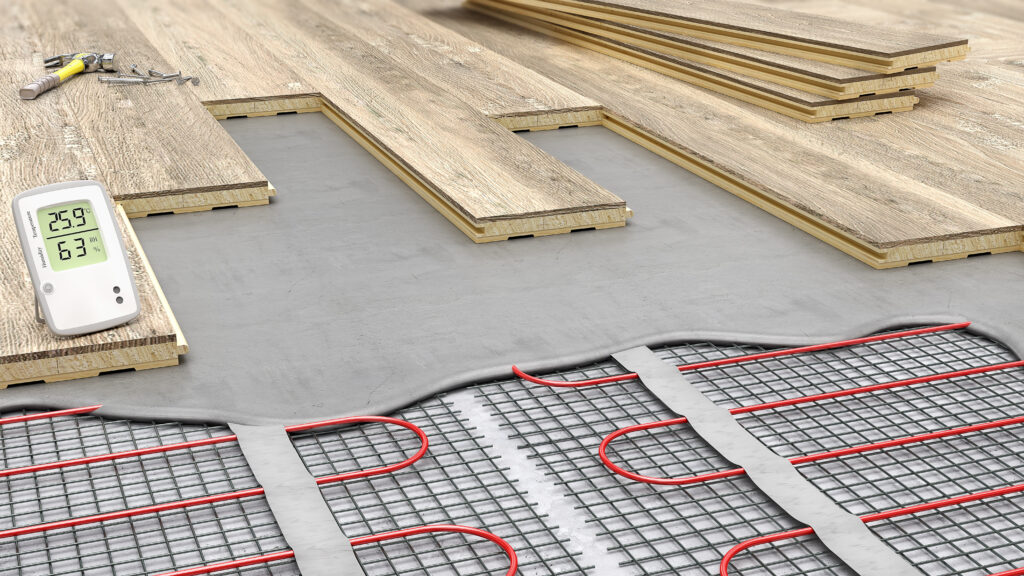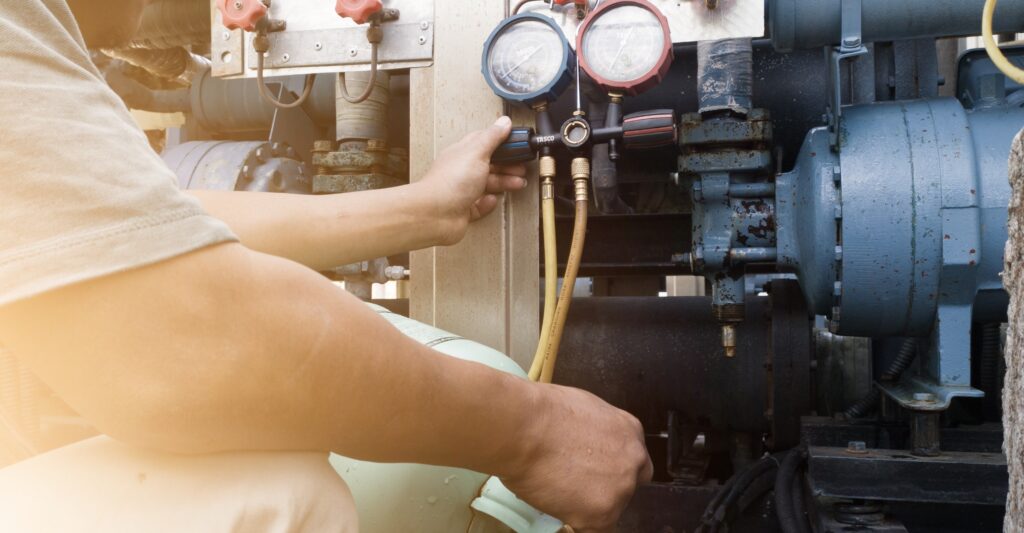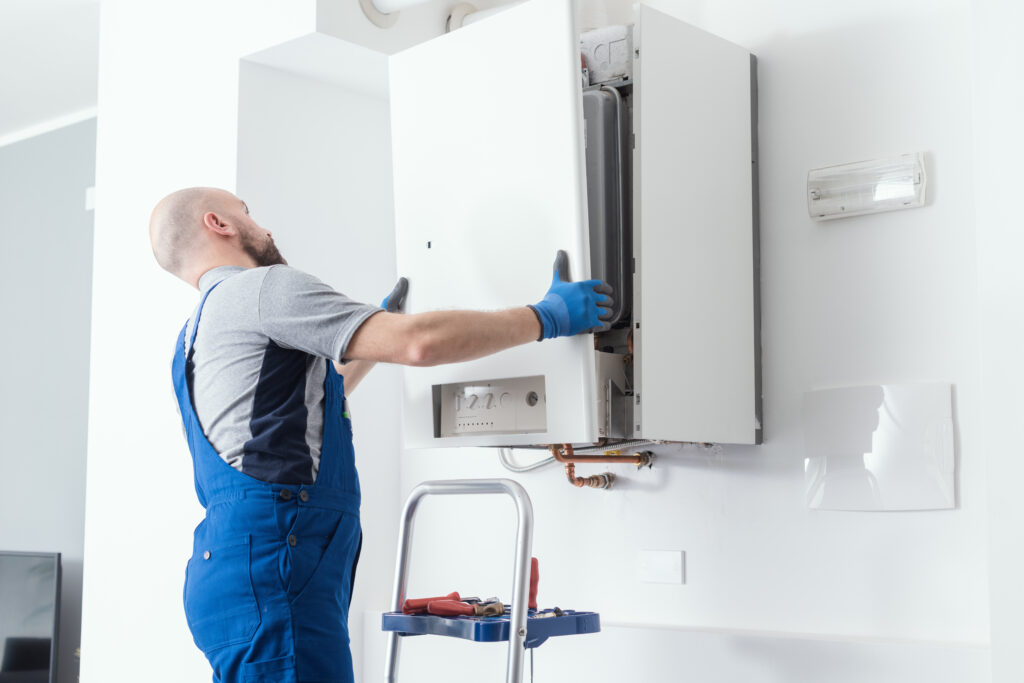In the UK, many households located off the main gas grid rely on alternative fuel sources for heating and cooking. Liquid Petroleum Gas (LPG) and heating oil are two of the most common alternatives. Each has its own set of advantages and disadvantages, and choosing between them can be a significant decision for any homeowner. This blog post aims to explore the pros and cons of LPG and oil, offering insights to help you make an informed choice based on your specific needs and circumstances.
Understanding LPG and Heating Oil
What is LPG?
LPG, or Liquid Petroleum Gas, is a versatile fuel composed mainly of propane and butane. It’s stored under pressure in liquid form and can be used for heating, cooking, and even powering vehicles. LPG is known for its high efficiency and is often used in areas without access to the natural gas grid.
What is Heating Oil?
Heating oil, commonly referred to as kerosene or 28-second oil, is a liquid fuel used in oil-fired boilers and furnaces. It’s a popular choice for rural homes not connected to the mains gas network. Heating oil is delivered by tankers and stored in a tank on the property.
LPG: The Pros
High Efficiency
LPG boilers are known for their high efficiency. They tend to heat up quickly and are capable of reaching high temperatures. This efficiency can lead to reduced fuel consumption and lower heating bills in the long term.
Clean Burning
LPG burns cleanly, producing fewer harmful emissions compared to oil. This makes it a more environmentally friendly option, contributing less to air pollution and greenhouse gas emissions.
Versatility
LPG is not just limited to heating. It’s also commonly used for cooking, providing a similar experience to natural gas. Additionally, LPG can be used in gas-powered appliances like ovens, stoves, and fireplaces.
LPG: The Cons
Higher Cost
Generally, LPG is more expensive per unit than heating oil. The higher cost can be a significant factor for households on a tight budget, impacting the overall running costs.
Storage Requirements
LPG requires a pressurised storage tank, which can be either above or below ground. These tanks require regular maintenance and inspections, and there’s also the need to ensure a reliable supply as LPG is delivered by road.
Dependency on Suppliers
Being dependent on suppliers for deliveries means you need to monitor your LPG levels and schedule deliveries. This can be inconvenient compared to being connected to the mains gas grid.
Heating Oil: The Pros
Lower Initial Cost
Heating oil is generally cheaper per unit than LPG. This makes it a cost-effective option in terms of running costs, especially during periods of high fuel usage like the winter months.
Efficient Heating
Modern oil-fired boilers offer high efficiency and effective heating. They provide a powerful heat output, making them suitable for larger homes or older properties with less insulation.
No Dependency on Mains
For properties off the mains gas grid, heating oil offers an independent solution. There’s no reliance on a continuous supply from a mains network, which can be a significant advantage in remote areas.
Heating Oil: The Cons
Environmental Impact
One of the major drawbacks of using heating oil is its environmental impact. Burning oil releases higher levels of CO2 compared to LPG. Additionally, there’s a risk of oil spills during delivery or from leaks in the storage tank, which can be detrimental to the environment.
Storage Tank Requirements
Like LPG, heating oil requires a storage tank on the property. These tanks take up space and need regular maintenance to prevent leaks. In case of a leak, the cleanup can be costly and environmentally hazardous.
Fluctuating Prices
The cost of heating oil can be subject to significant fluctuations, often influenced by global oil prices. This unpredictability can make budgeting for heating costs challenging for homeowners.
Comparing Safety Aspects
LPG Safety
While LPG is a flammable fuel, modern storage tanks are designed with safety in mind, equipped with numerous safety features. However, it’s essential to ensure proper installation and regular maintenance to prevent any risks associated with leaks or pressure issues.
Oil Safety
Heating oil is not as flammable as LPG and poses less risk of explosion. Nevertheless, the risk of oil leaks and the potential environmental damage they can cause requires careful monitoring and maintenance of oil tanks.
Installation and Maintenance
Installing LPG and Oil Systems
Both LPG and oil heating systems require professional installation by qualified technicians. The installation process includes setting up the storage tank, connecting the fuel supply to the boiler, and ensuring all safety measures are in place.
Ongoing Maintenance
Regular maintenance is crucial for both LPG and oil heating systems to ensure efficient and safe operation. This includes annual servicing by a certified technician, regular checks of the tank and pipework, and monitoring for any signs of wear or damage.
Long-Term Considerations
Future Proofing
With the UK’s commitment to reducing carbon emissions, the long-term viability of LPG and oil as heating solutions is a consideration. Innovations in renewable energy and the push towards more sustainable fuel sources might influence the future availability and cost-effectiveness of these fuels.
Resale Value and Marketability
The type of heating system can affect the resale value of a property. More environmentally friendly and efficient systems may be more attractive to potential buyers, especially as energy efficiency becomes a more prominent consideration in property purchases.
Final Thoughts
Choosing between LPG and oil for heating requires careful consideration of various factors including cost, efficiency, environmental impact, safety, and future sustainability. While LPG offers cleaner burning and high efficiency, it comes with higher costs and dependency on supplier deliveries. On the other hand, heating oil provides a lower-cost option with efficient heating, but with higher environmental impacts and the need for large storage tanks. Homeowners need to weigh these pros and cons against their specific requirements, budget, and long-term plans. Regardless of the choice, ensuring regular maintenance and staying informed about advances in heating technologies and fuel alternatives is key to making the most of your home heating system.
Call on the Professional Services of Heat-Tec
Whether you are looking for plumbing or heating engineers or a company that carries out gas safety inspections, you have found the right company. Heat-Tec offers a professional approach, striving to achieve the highest possible standards from the start to the finish of any project. No job is complete until you are satisfied, contact us today.






